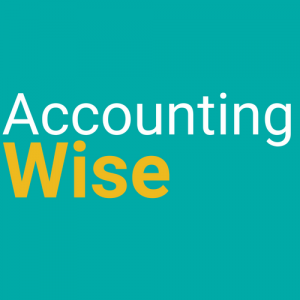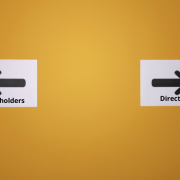What is a Sole Trader Business?
As the term suggests, when operating as a sole trader you’re running your business as an individual. Being a sole trader merely means that there’s no legal distinction between the owner and the business.
Sole Trader definition
As a sole trader, you’ll be –
- Personally responsible for any losses your business makes
- Personally responsible for any of your business’ bills
- Personally responsible for keeping accurate records of your business’ sales and spending.
The tax responsibilities
To keep HMRC happy, sole traders need to do the following things –
- Send a Self Assessment tax return every year
- Keep a record of all income and expenses
- Pay Income Tax and National Insurance on any profits their business makes
- Register for VAT – although only if their takings are over the VAT threshold (or will be soon)
- From April 2019 you might need to keep records digitally as part of HMRC’s Making Tax Digital (MTD) roll out.
As is the case for limited companies, failure to meet these obligations could mean hefty penalties.
What are the main advantages of being a sole trader?
Many freelancers begin as sole traders, due to the relative ease of setting-up and the comparatively small administrative burden involved and lower costs.
Setting up as a sole trader is simple
There’s a simple three-step process to starting out as a sole trader:
- Let HMRC know you’re self-employed
- Register for Self Assessment as a sole trader
- Pick a business name.
Subject to obtaining any industry-specific licenses you may need, you’re free to start trading immediately after that. There’s no need to register with Companies House because, although you have a bona fide business, it isn’t a company.
Naming your sole trader business
Your business name will need to feature on any official paperwork, such as invoices. Sole traders are also subject to certain rules when it comes to naming your business. Sole trader names aren’t allowed to:
- Include ‘limited’, ‘Ltd’, ‘limited liability partnership’, ‘LLP’, ‘public limited company’ or ‘plc’
- Be offensive
- Be the same as an existing trademark.
There’s also a list of ‘sensitive’ words and expressions that can’t feature in your company’s name, and you can’t pick a name that suggests a link to any government or local authority without permission. Gov.uk provides a helpful list of what constitutes a ‘sensitive’ word, what names you can use and which ones you should steer clear of.
Sole traders have less admin
As mentioned above it’s simple to get started as a sole trader. You can avoid all the extra paperwork involved in setting up as a limited company (Annual Accounts, Corporation Tax Return etc.) if you follow the sole trader path.
As a sole trader, you’ll have to keep accurate records of sales and expenses, but operating in this manner is much simpler thanks to the fact that you’re only submitting a Self Assessment (and perhaps a VAT return).
Filing forms at Companies House – for example, to appoint or remove directors, allot new shares and suchlike – are irrelevant to a sole trader, as is the requirement to maintain a list of statutory registers. You’ll avoid the constant menace of IR35 too, as these HMRC rules only apply to those operating as a limited company.
So, you’ll spend less time doing paperwork and hopefully more time earning money.
Sole traders have fewer costs
When setting up as a sole trader, you won’t need to employ the services of a solicitor or company formation agent (as some people do when they form a limited company) so, unless you hire an accountant from day one, there are no professional fees to pay at the outset. Accountancy costs can also be cheaper as there are far fewer statutory filings and reporting deadlines.
You also won’t have to pay a registration fee to Companies House, which will make you a tidy saving of about £13.
Sole traders have more privacy
While a limited company’s accounts and certain details about company directors are available for public inspection via a few clicks on the Companies House website, as a sole trader you are protected by HMRC’s taxpayer confidentiality rules.
Because your details are private, your rivals have less information about you, which makes it harder for them to size you up and compete with your business.
While sole trader status undoubtedly affords several advantages over limited company registration (such as ease and speed of set-up, increased flexibility, minimal accounting and admin burden) finding the right business structure for you will involve an up-close-and-personal look at your short, medium and long-term priorities. Ready to hold your business up to a mirror?
Sole Traders have complete control
Perhaps the greatest advantage of being a sole trader is the freedom to captain your own ship – there are no shareholders to consult and the only opinions you need to listen to are yours and perhaps your accountants if you have one. That also means that all post-tax profits are yours to do with as you please.
Disadvantages of being a sole trader
The biggest downside comes in the form of unlimited liability, meaning should your business incur any losses your personal property or belongings could be up for grabs by your creditors.
This can happen because, in the eyes of the law, there is no difference between the person running the business and the business itself. When it comes to chasing money owed by a business, a sole trader has to settle up. The sole trader is liable for any debts that the business incurs.
Operating as a sole trader can be tax inefficient, and going limited could offer the potential for greater profitability once your earnings go over a certain threshold.
Greater employability and greater borrowing power can come with incorporating too, as banks and big business are generally more wary of doing business with sole traders.
The sole trader structure is often considered better for the rookie freelancer, whilst going limited will generally suit the more seasoned freelancer or contractor. An accountant can tell you when the right time might be to make the move to a limited company.
Is being a sole trader right for my business?
It depends, for personal advice on what is best for you, you should speak to an accountant. We offer a free consultation where our advisers guide you through this and more. You can call us on 0330 113 8442 or you can book a callback. We’ll be happy to help you find the right structure for your business.









